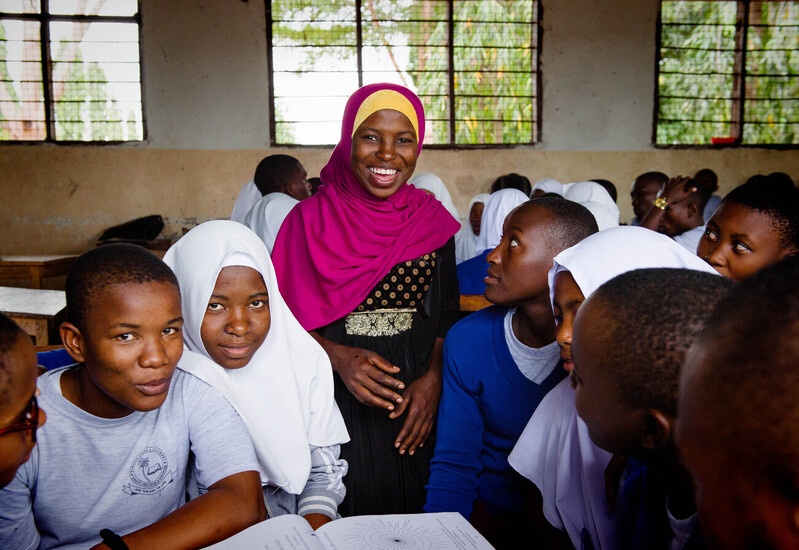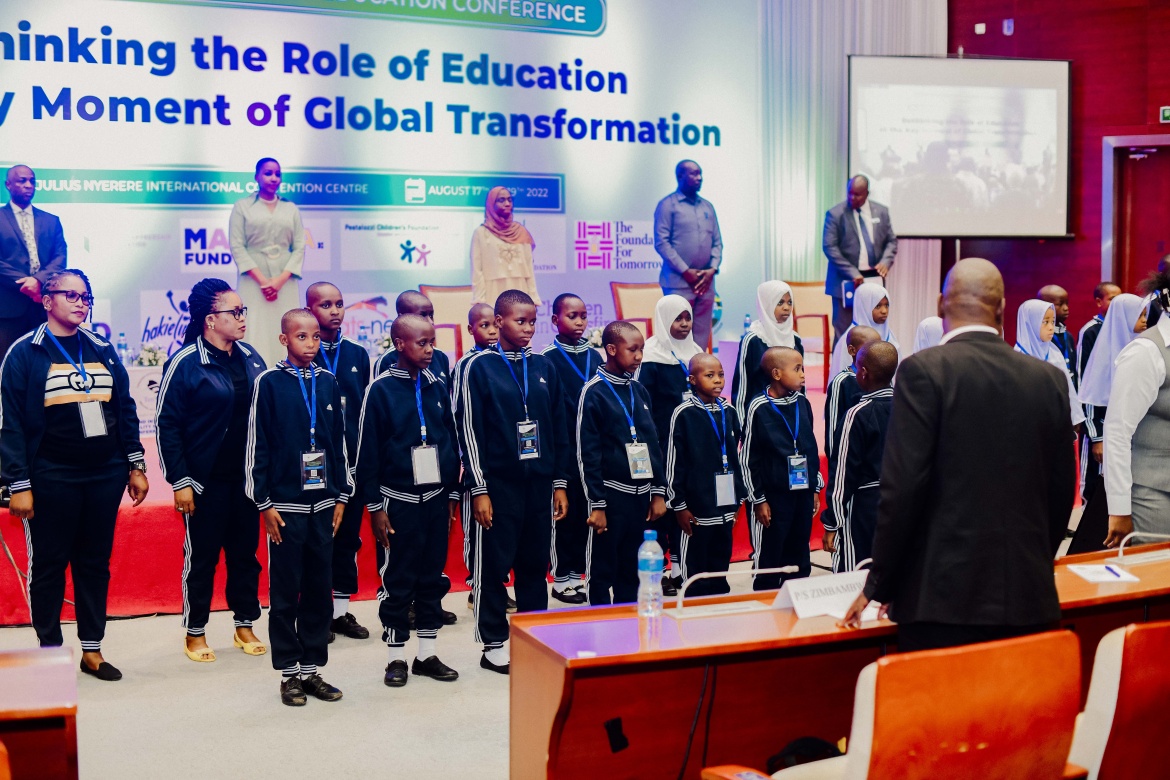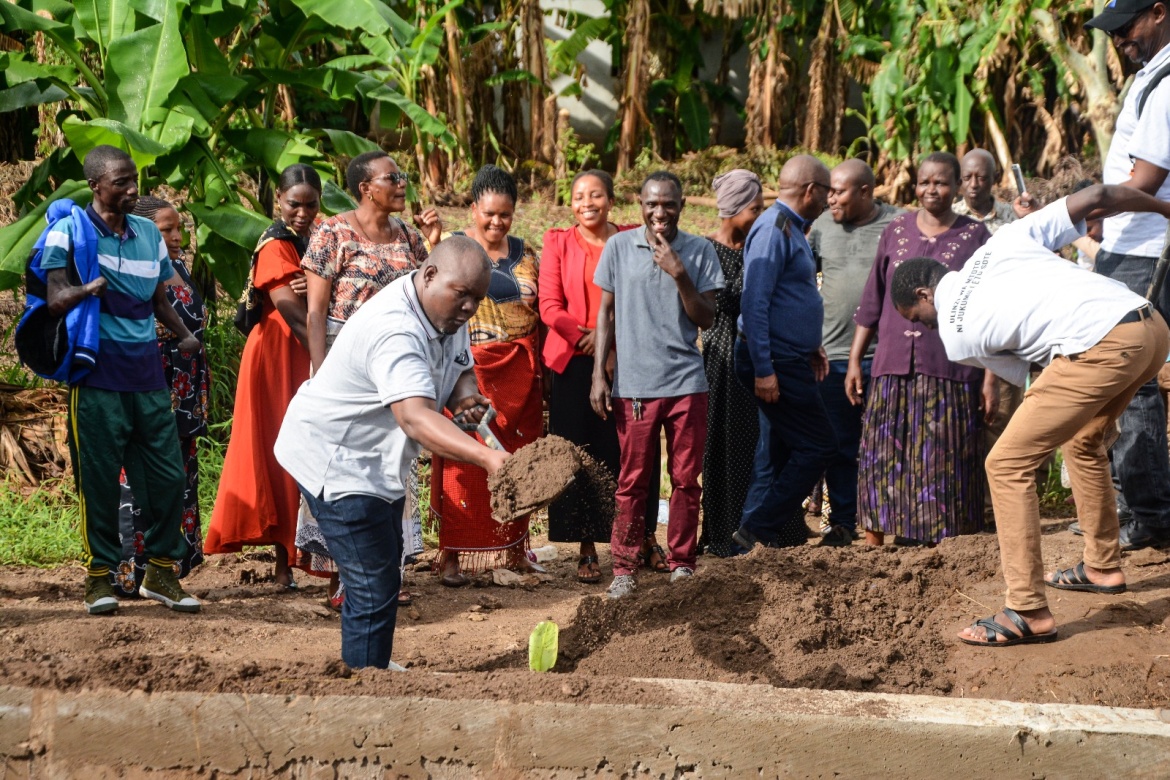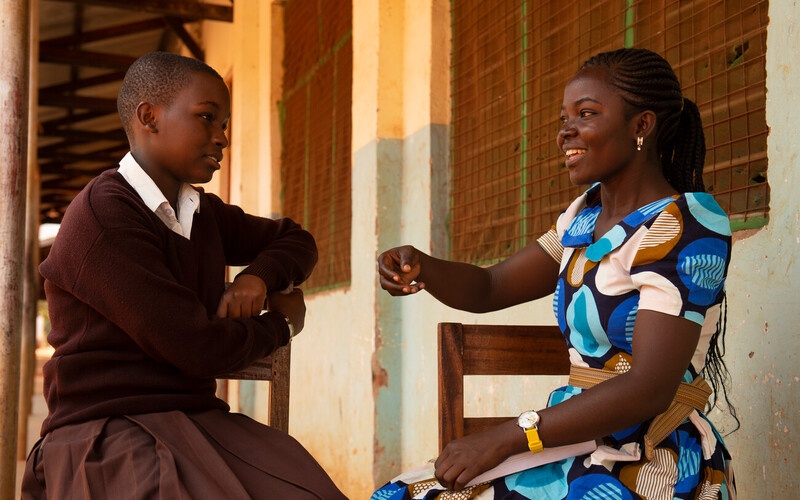How civil society is helping transform education in Tanzania
Education Out Loud is supporting the Tanzania Education Network/Mtandao wa Elimu Tanzania (TEN/MET) for the 2020-2023 period. TEN/MET is working to create an education system that provides all learners the opportunity to engage in inclusive, equitable, quality education in Tanzania.
The government of Tanzania has a strong history of engaging a wide range of stakeholders to deliver quality education to Tanzanian children and youth.
The country has made significant progress in achieving basic education for all, but the introduction of free basic education in 2016 led to an influx of students into the system, and learning is lagging due to large class sizes.
Working in partnership to transform education
In 2021, Tanzania and partners worked together to identify persistent challenges to improving learning as well as a priority reform with the potential to address these challenges systemically and sustainably. The Tanzania Partnership Compact was published in 2022, marking stakeholders’ agreement to prioritize improving planning and management of the teacher workforce.
GPE is supporting Tanzania to get the right number of trained teachers deployed to the places where they are needed, namely disadvantaged areas. A focus on gender equality and inclusion means the country aims to hire more female teachers, improve female participation, as well as leadership, in education, and support students and teachers with special needs. A focus on the learning environment aims to ensure equitable allocation of teaching and learning resources.
We spoke with 3 civil society organizations (CSOs) to learn more about how they work with the government and other partners to ensure all Tanzanian children get the education they deserve.

How do the GPE processes promote inclusive dialogue among partners and alignment of their resources with policy priorities?
"GPE provides a systematic, organized and checked way of looking at things together. The process provides an opportunity to reflect as an education sector, building on a strong foundation of the government of Tanzania of education dialogue structure. From the community level up to national level, there is engagement of the different stakeholders. For me, it is that reflection moment where we look at the lessons we’ve learned and, most importantly, the information we have, what it tells us and where the gaps are. We have reflected on statistics in terms of where we are as a country but also in terms of finances – what we have as a government, what development partners bring, what CSOs bring, and what pieces are missing."
Lydia Wilbard, Executive Director: Learning & Engagement, CAMFED
How is the GPE partnership compact process different from what was done before?
"The partnership compact process is quite different from the past grant application process. It has crystalized inclusivity of all actors in the process, brought about in-depth ownership of the program to all who are involved and has further informed us of what is in the pipeline in terms of education systems transformation in the country. The past processes were too skewed within a group of people who could think and write on behalf of the country without wide consensus among all actors. The new process has increased transparency and ownership among all actors."
Ochola Wayoga, National Coordinator, Tanzania Education Network (TEN/MET)

How has this process helped to identify a priority capable of transforming the education sector?
"When you look at the education sector in Tanzania, there are quite a number of critical Issues that need urgent sustainable solutions. In light of this, the task force entrusted with developing the partnership compact revisited thoroughly our education sector development plan, education sector analysis reports for the past five years, learning outcomes, and overall system inefficiency derailing education progress. Unanimously, the government, development partners, CSOs under TEN/MET, and UN agencies involved agreed that to transform Tanzania’s education system, teacher’s workforce planning and management is inevitable."
Ochola Wayoga, National Coordinator, Tanzania Education Network (TEN/MET)
"Going to our documents, our priorities, our data – that’s how we came up with the priority around teacher education. We said: if we want to see improvement in terms of basic education – our education policy commitment – what is that thing that would be a catalyst? That’s how we came up with teacher workforce planning and management. If we do well with the teachers, plan better, train them better, employ and distribute them better, we will do better. We asked what is needed to help them succeed. We’ve looked at how teachers have been managed in the past, and we said as a sector, if we get this right, we’ll see improvements in education."
Lydia Wilbard, Executive Director: Learning & Engagement, CAMFED
How can CSOs contribute to transforming education in Tanzania?
"Positioning our work within the system. We talk with communities about how we can serve each individual child and support the system to do better. We work with the government, provide resources, contribute to the government agenda, stimulate community-driven accountability and bring learning from the community to inform what is needed. Working every day with young women from marginalized communities, hard-to-reach-schools, and teachers – and through the TEN/MET platform – we are able to share our case studies and tell the government, for example, that certain schools do not have female teachers, ensuring they are aware. We also look at issues together by, for example, inviting government officials to visit schools."
Lydia Wilbard, Executive Director: Learning & Engagement, CAMFED
"The CSOs have been contributing to transforming education in Tanzania through participating in implementing and monitoring grant activities and by taking an active role in the education sector dialogue structure. For many years, CSOs have been contributing resources to complement government efforts and have made commitments to contribute resources to unlock GPE’s innovative financing, i.e., the Multiplier. CSOs mobilize communities to effectively participate in grant activities and carry out periodic research and surveys to assess the achievement of results. Furthermore, CSOs have been taking an active role in policy monitoring and policy influencing, including the promotion of transparency and accountability across all levels."
Dr John Kalage, Executive Director, HakiElimu

What would you say is GPE's value-added to your country?
"Tanzania has been unable to allocate 20% of the annual budget or 5-6% of the GDP to the education sector as recommended by the international agreement. This is due to inadequate resources and competing priorities coming from different sectors. Thus, GPE’s investment has always been a great boost of resources, and the technical support received through GPE has been of great value. The achievements we are proud of in the education sector, such as a significant increase in gross enrollment in basic education (over 90%), gender parity in basic education, and infrastructure improvement and overall quality improvement, could be directly associated with GPE and other development partners' support."
Dr John Kalage, Executive Director, HakiElimu
"GPE is a key partner in terms of education improvement. They bring resources, but they are also willing to be part of the team and the process, rather than just sending resources and watching. GPE’s value-added is the collaborative partnership and their willingness to be part of the team as we walk the journey."
Lydia Wilbard, Executive Director: Learning & Engagement, CAMFED
About the CSOs
Tanzania Education Network (TEN/MET) is an umbrella organization of 219 CSOs working in the education sector in Tanzania. TEN/MET envisions an education system through which all learners have the opportunity to engage in Inclusive, equitable, quality education in Tanzania. Fundamentally, TEN/MET represents the voices of the citizens demanding the education they want. Through TEN/MET, the collective citizen agenda on education is amplified, addressed and pushed for the desired education transformation.
As part of its investment in civil society advocacy and social accountability efforts, GPE’s Education Out Loud fund is supporting the Tanzania Education Network/Mtandao wa Elimu Tanzania (TEN/MET) for the 2020-2023 period. This builds on previous support from the Civil Society Education Fund (CSEF).
To learn about other civil society efforts supported in Tanzania through Education Out Loud access this link.
HakiElimu is a non-governmental organization, and member of TEN/MET, working to enable people to transform education in and out of schools; influence policy-making and effective implementation; stimulate imaginative public dialogue and social change, conduct research, policy analysis and advocacy; and collaborate with partners to advance participation, accountability, transparency and social justice.
CAMFED is an organization to support more vulnerable girls to attend and complete school and transition to become leaders. A pan-African, grassroots-led movement, CAMFED began work in Tanzania in 2006 and is a member of TEN/MET.’’
GPE KIX supports research led by CAMFED Tanzania on Scaling a Youth-led Social Support and Mentorship Program to Improve Quality of Education for Marginalized Girls in Tanzania, Zambia and Zimbabwe. Read more.
